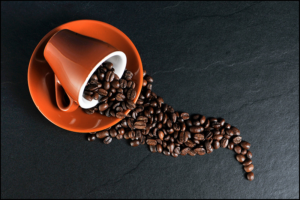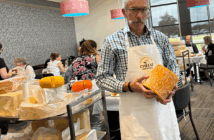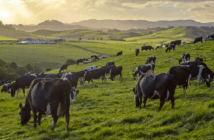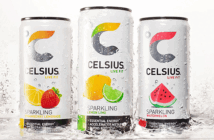
Markets transformation manager Australia/New Zealand for the Rainforest Alliance, Melanie Mokken, said global growing demand for coffee means that unless something changes, the current system will not be able to keep up.
“The minimum gap that we expect to see will be 60 million bags,” she says. “This is a deficit higher than the annual production of the world’s largest coffee producer, Brazil.
“Without major efforts to adapt coffee production to climate change, global production could even be lower in 2050 than it is today. Due to rising temperatures, more irregular rainfall, and a higher number of severe droughts, growing coffee is becoming harder, the impacts of which can be seen closer to home. Rising temperatures in Brazil, mean that farmers are facing more droughts which could have significant consequences on the price of coffee on our shores.
“With climate change at the forefront of many people’s minds, we expect that consumers will start asking more and more where their coffee originated, whether it was sustainably sourced and if any price increases benefit the farmers and workers behind the beans.”
A recent survey by the Rainforest Alliance revealed that 70% of New Zealanders say that they look for labels that ensure their choices are better for the environment or ensure higher animal welfare.
“New Zealanders are demanding more from companies, with 83% saying they agree that businesses aren’t doing enough to reduce environmental impact. In addition, 67% said that they would make eco-conscious choices, even if it was more expensive. Kiwis are not afraid to support businesses with their wallets when they are doing the right thing for the planet, and this comes right down to their local coffee shop.”
Less than 25% of global coffee production is procured as standard-compliant by the coffee industry, while as much as 55% of global production volume is certified. This means a substantial number of farmers are often unable to recognise the economic benefits of improved market access and price. The Rainforest Alliance continues to appeal to the industry to favour independently verified certified coffee over conventionally produced coffee in order to support producers and help create a more sustainable sector.
“It is important to remember that making small individual changes, such as seeking out sustainably sourced coffee, can add up to vast positive impacts. It’s not far-fetched to suggest that when Kiwis’ change their coffee rituals, they really can change the world,” says Mokken.
What can you do?
The Rainforest Alliance encourages coffee-lovers to make it a habit to ask their favourite coffee shop, roaster or brand the following questions and make small actions
- Ask where the coffee beans originate and how their sourcing practices contribute to sustainability – are coffee producers receiving a decent payment? Are ecosystems being protected?
- Check sustainability labels that have been verified by an independent party – such as the Rainforest Alliance’s green frog seal – when purchasing coffee and tea in cafes, restaurants, supermarkets or grocery stores
- Take a reusable cup to the local coffee shop to avoid waste




























































































